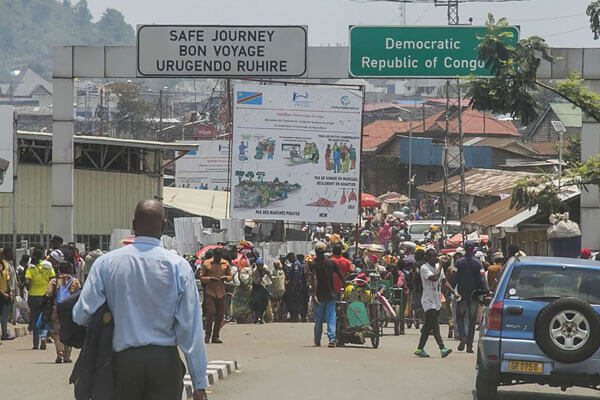
Our Projects are
Transforming African Trade
Quick Contacts
2nd Floor, Fidelity Insurance Centre Waiyaki Way, Westlands

In Summary
By ANTHONY KITIMO
The 10-year-old Northern Corridor trade agreement will be updated by March to address emerging trade opportunities, meet current needs and boost regional trade.
This was the main resolution of the 48th executive meeting of the Northern Corridor Transit and Transport Co-ordination Authority member states — meeting in Mombasa, Kenya recently. The member states are Kenya, Uganda, South Sudan, Democratic Republic of Congo, Rwanda and Burundi.
“The revised draft of Agreement and protocols has been received and is awaiting a validation workshop in March this year before its submission to the Council of Ministers,” said executive secretary Omae Nyarandi.
The revised trade agreement will include the use of Kenya’s Standard Gauge Railway, which was not there in 2007 when the agreements were being drawn up; joint funding of infrastructure such as roads, one-stop-border posts, motion weighbridges; and speed up implementation of the Customs Union Protocol by adopting a single window system for regional custom data transfer to end cross-border delays.
Trade Mark East Africa has committed budgetary support of $393,000 for the recruitment of system developers to enhance the current online tools — which are a transport observatory system and the regional information system — and are expected to be officially launched in the next two months. These will facilitate smooth movement of cargo.
The committee noted that there was a significant improvement of cargo transit time along the Northern Corridor following infrastructure initiatives undertaken in Kenya between 2013 and 2019.
On infrastructure, the committee agreed to seek funds to improve roads especially in South Sudan, where less than one per cent of roads are in a good state according to the Northern Corridor Transit Transport Co-ordination Authority 2019 report.
South Sudan’s permanent secretary David Hassan who attended the meeting said his government is working with different partners to improve road infrastructure and reduce the cost of doing business. “Improved infrastructure has proven to reduce transit times, which then lowers transport costs,” said Mr Hassan.
The installation of high-speed weigh-in-motion weighbridges and the harmonisation of vehicle load controls has reduced the cost of transporting cargo.
BORDER POINTS
Since the enactment of the East African Community One-Stop-Border Posts Act 2016, a total of 17 stops have been established and are operational. Eight of them are on the Northern Corridor routes.
“It now takes an average three days to move cargo from Mombasa to Busia and Malaba borders compared with the previous 20 days. Cargo to Burundi and DR Congo now takes less than a week and cases of theft have gone down by more than 90 per cent following the implementation of the Regional Cargo Tracking System (R-ECTS),” said Kenyan Infrastructure Principal Secretary Paul Maringa.
Road freight charges from Mombasa to Nairobi have been declining from $1,300 in 2011 to an average $879 in 2016 and down to the current average of $650 and $850 for a 20 foot and 40-foot container, respectively.
Source : theeastafrican.co.ke
Disclaimer: The views and opinions expressed in this article are those of the authors and do not necessarily reflect the official policy or position of TradeMark Africa.